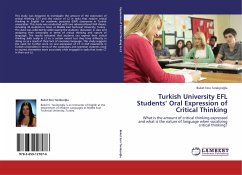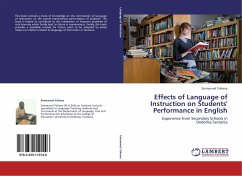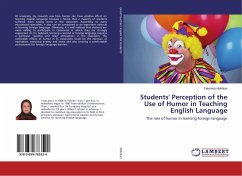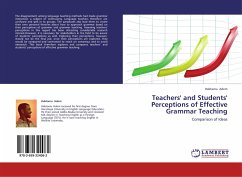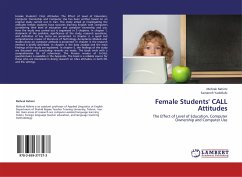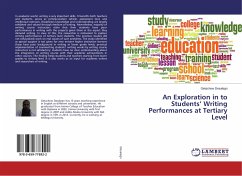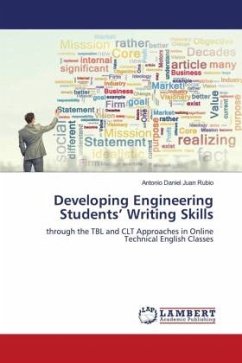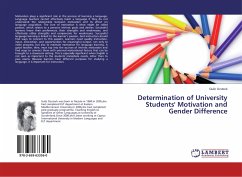
Determination of University Students' Motivation and Gender Difference
Versandkostenfrei!
Versandfertig in 6-10 Tagen
24,99 €
inkl. MwSt.

PAYBACK Punkte
12 °P sammeln!
Motivation plays a significant role in the process of learning a language. Language teachers cannot effectively teach a language if they do not understand the relationship between motivation and its effect on language acquisition. The core of motivation is what might be called passion, which relates to a person's intrinsic goals and desires. Successful learners know their preferences, their strengths and weaknesses, and effectively utilize strengths and compensate for weaknesses. Successful language learning is linked to the learner s passion. And instructors should find ways to connect to thi...
Motivation plays a significant role in the process of learning a language. Language teachers cannot effectively teach a language if they do not understand the relationship between motivation and its effect on language acquisition. The core of motivation is what might be called passion, which relates to a person's intrinsic goals and desires. Successful learners know their preferences, their strengths and weaknesses, and effectively utilize strengths and compensate for weaknesses. Successful language learning is linked to the learner s passion. And instructors should find ways to connect to this passion. Learners need quality instruction, input, interaction, and opportunities for meaningful output, not only to make progress, but also to maintain motivation for language learning. A good teacher, then, must tap into the sources of intrinsic motivation and find ways to connect them with external motivational factors that can be brought to a classroom setting. This is especially significant when English is not seen as important to the students' immediate needs, other than to pass exams. Because learners have different purposes for studying a language, it is important for instructors.



